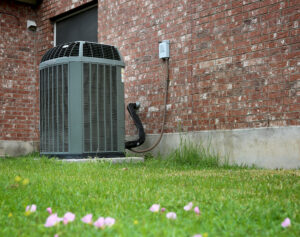What to Know About the R-410A Refrigerant Phase-Out

If your home has an air conditioner or heat pump, chances are it runs on R-410A refrigerant, also known as Puron. But as of 2025, things have changed. The Environmental Protection Agency (EPA) has officially started phasing out this widely used refrigerant in favor of more environmentally friendly alternatives.
What is the R-410a Phase Out?
The EPA has implemented new regulations to reduce hydrofluorocarbon (HFC) emissions, which includes phasing out R-410A. HFCs are potent greenhouse gases that contribute to climate change.
As of January 1, 2025, HVAC manufacturers can no longer produce or import new air conditioners and heat pumps that use R-410A. However, systems already on the market can still be sold and installed.
The production and import of R-410A refrigerant itself is also gradually being reduced. Supply is expected to shrink over time, with R-410A production set to decrease by 80% over the next decade. This will make it harder and more expensive to service older systems that rely on it.
Why Is R-410A Being Phased Out?
R-410A has been the go-to refrigerant for residential cooling systems since it replaced R-22, also known as Freon, in 2020. However, the major downside is its high global warming potential (GWP). When R-410A leaks into the atmosphere, it traps heat even more readily than carbon dioxide. As part of the EPA’s bid to combat climate change, R-410A is officially being replaced with more eco-friendly options.
Do You Need a New Air Conditioner?
Many homeowners wonder if they can simply switch to a different refrigerant without replacing their entire HVAC system. Unfortunately, that’s not an option. Air conditioners and heat pumps are designed to work with a specific refrigerant, and mixing different types is a recipe for disaster.
The good news is that the EPA isn’t asking homeowners to replace their air conditioners. If your system runs just fine, you’ll still have access to R-410A to service your existing AC for several more years. However, if your air conditioner is more than a decade old, now is the perfect time to start planning for a replacement.
Not sure if your AC uses R410a refrigerant? Give our AC experts a call and we’ll help you find the best air conditioner for your Ohio or Kentucky home!
Introducing A2L Refrigerants
The latest refrigerants are classified as A2L. The primary options include R-32 and R-454B, both of which have a much lower GWP than R-410A. Systems using A2L refrigerants also operate more efficiently. Rest assured that every HVAC system manufactured today is designed for A2L refrigerants and complies with upcoming regulations, so you won’t have to worry about another phase-out anytime soon.
The main difference between A2L refrigerants and older options is that A2Ls are mildly flammable. This might sound alarming, but modern HVAC systems are designed to handle these refrigerants safely. Contractors nationwide are also receiving updated training to ensure compliant installation techniques.
What Do Homeowners Need To Do?
If you’re wondering how this phase-out affects you, here are the steps to take:
- Check your system: Look at your air conditioner or heat pump to see what refrigerant it uses. If it’s R-410A, you’ll eventually need a replacement plan.
- Consider your system’s age: If your AC is over 10 years old, start thinking about upgrading. You don’t want to be caught with an outdated unit when R-410A becomes scarce.
- Weigh repair vs. replacement: If your system breaks down, you may be able to repair it, at least for now. However, the longer you wait to upgrade, the more expensive repairs could become as R-410A supplies dwindle.
- Plan for the future: The demand for new, compliant HVAC systems will only increase. Getting ahead of the rush means better availability, pricing, and financing options.
Call Sal’s for Air Conditioning Upgrades or Replacement Services in OH & KY
Sal’s Heating & Cooling can help you navigate the R-410A phase-out in Louisville, KY, and Northern Ohio. Whether you need a repair, an upgrade, or professional advice, expect no-nonsense service from us. Our team offers expert installation services, financing options, and top-of-the-line systems that meet the latest EPA standards.
To schedule your AC consultation or get air conditioning repairs, contact our HVAC experts today!





